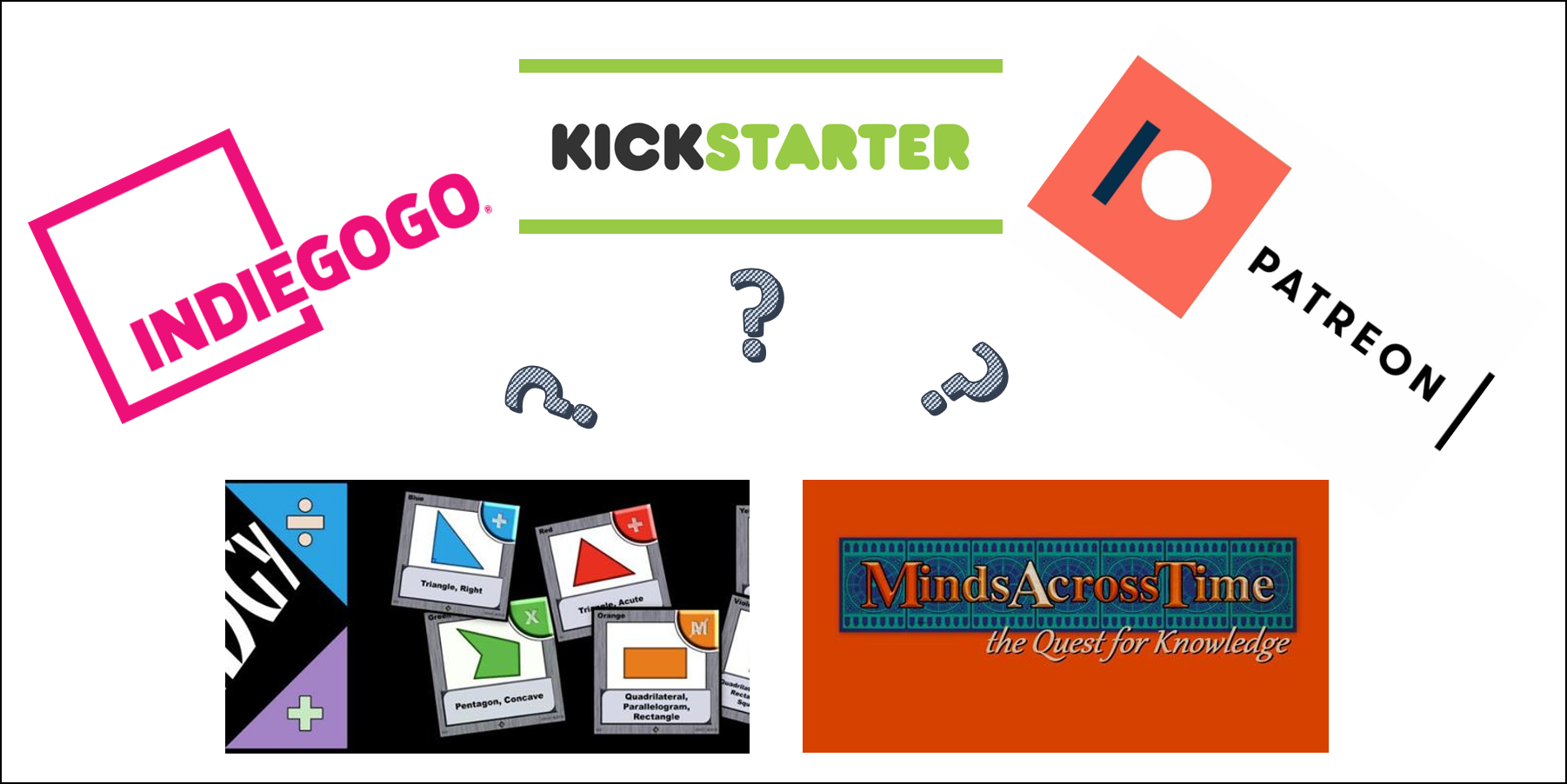
A few years ago, I started an educational company with a friend I met while we were both volunteering at a high school for differentiated learners. We taught technology and design, ran community showcases, and studied and tested pedagogy intensely, if not rigorously. I went to grad school so that I could solve some difficult research problems related to improving education, but in the mean time, inventors renaissance, LLC has in turn started ir GAMES. ir GAMES is an avenue for us to test out new interactive pedagogies and build a following, and it seems like everyone we talk to is really excited about what we’ve made. One of the most common questions we get is, “Do you have a Kickstarter or something?” Initially, we always responded with, “We’re really trying to fund everything ourselves,” but we’ve since realized that we were thinking about crowdfunding the wrong way. So without further ado, here’s a handy guide to how to think about crowdfunding:
Crowdfunding is NOT “investment”
Let me explain what I mean. First of all, by “crowdfunding” I really just mean KickStarter, IndieGoGo, or Patreon, which at the time of writing are the three most popular (by number of users) crowdfunding platforms in the US. Second, by “investment” I mean selling shares in the company. Maybe others don’t have this misconception, but we definitely felt like we would be losing something by using a crowdfunding platform. But in reality there is a small flat percentage fee for using the platform and processing transactions, and using any of the aforementioned sites doesn’t mean giving away any ownership in the company. From a backer’s perspective, it feels like investing, because money is paid up front for some eventual reward, but that eventual return is usually a product or service.
Crowdfunding CAN BE for preorders
A much better way to think of crowdfunding platforms is as a way of collecting pre-orders. Small businesses (and even larger businesses) can fall into a kind of Catch-22 where:
- They don’t have enough capital yet to manufacture with economies of scale.
- Getting capital requires purchases by individuals.
- Individuals are much less willing to buy the product at the higher price point.
While venture capital can help to break through to larger scales of production, pre-orders can serve a similar function, providing the capital up front to manufacture a product with the benefits of scale. The difficult part is that unlike investment, where only a few people have to be convinced to believe in your business and/or product, pre-orders require orders of magnitude more people to be willing to take a chance on you, albeit with a smaller amount of cash.
Crowdfunding is NOT free marketing
Another misconception that we’ve had is that if an idea is good, it will automatically be discovered on a crowdfunding platform and raise enough capital to survive. The simple fact is that there are way more ideas on crowdfunding platforms than funded ones. Although organic discovery is possible, most platforms will only drive random visitors to your page if you are already generating a lot of traffic.
Crowdfunding CAN BE a rallying point for marketing efforts
A crowdfunding page can be a good central location for people to follow your project. Many have built-in integrations with social media, allow posting new content on the site, and make it easy to monetize or differentiate content. If you can keep people coming back to your crowdfunding page, you don’t have to dilute your efforts by managing content on multiple different platforms.
What did we choose?
ir GAMES has just launched a page on Patreon. This was a natural fit for us, since we’re developing many products, and we want to build a following of people who share our vision across all of them. We are well positioned to release ongoing benefits to subscribers, including newly released games, art, development/art/design blogs, and more. But we also plan on using other platforms for preorders of specific games. Many retailers and distributors want to see proven sales, and we see those other platforms as an intermediate step to a physical retail presence.
I hope this was helpful, and please, go check out our page on Patreon!
Thanks,
- (S)am